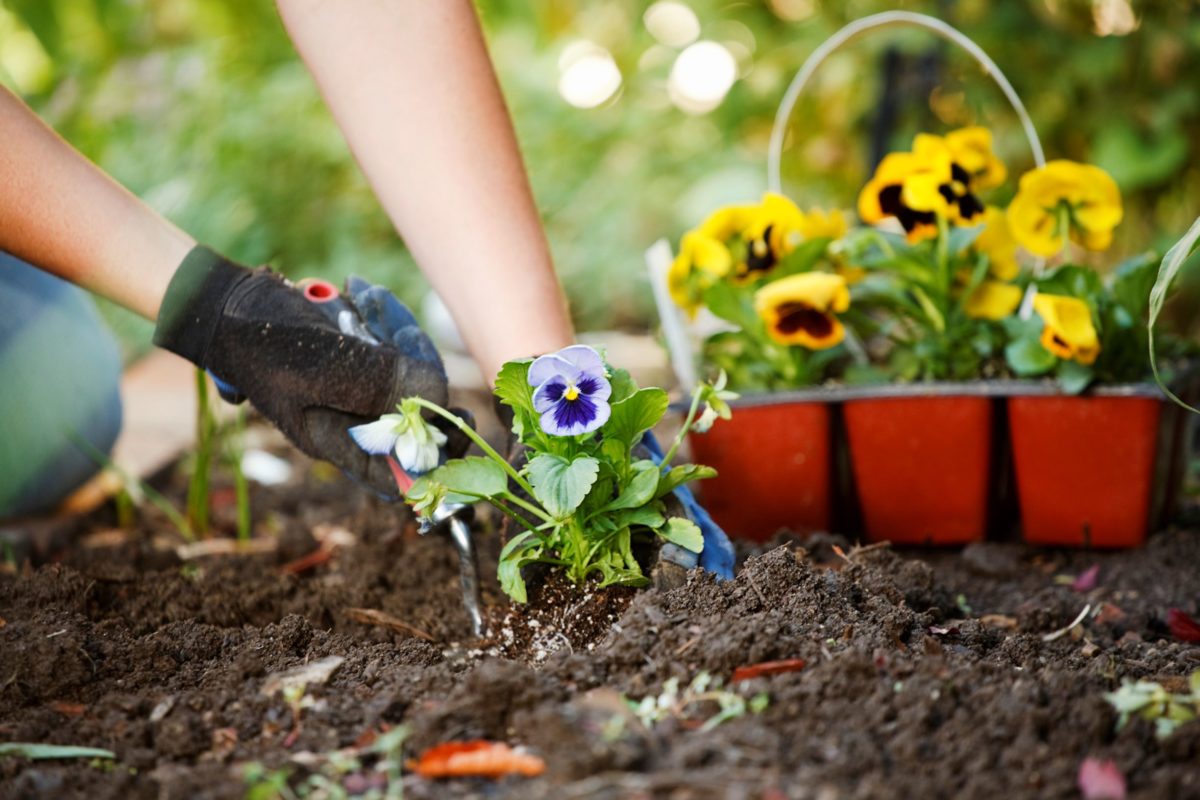May is perhaps the most invigorating month of the entire year. With beautiful gardens, the fragrant scent of freshly tilled dirt, greenery bursting into life all around, and Mother’s Day flowers to color the scene, this month makes you want to get outside to be one with nature. Gardening can be a thrilling and fulfilling hobby, one that we hope you continue to enjoy for many years. For some people, gardening may even bring in the salary.
That’s why we want to remind you about all the ways you should protect your hands while gardening. Oversights or missteps can put a damper on that flowery spirit of yours, but we want to make sure you keep that green thumb up.
Common Gardening-Related Hand Injuries
Some of the most common hand and wrist conditions related to gardening include trigger thumb, wrist tendonitis, hand infections, gamekeeper’s thumb, and minor or traumatic injuries.
- Trigger Thumb: Trigger thumb occurs when the pulley at the base of the finger becomes too thick, making it hard for the tendon to move freely.
- Tendonitis: There are several types of tendonitis, which is essentially a torn, pulled, or swollen tendon.
- Infections: Infections related to gardening include rose thorn disease and Legionnaires’ disease. Other gardening-related concerns are poison oak, poison ivy, and irritation from chemicals.
- Gamekeeper’s Thumb: Gamekeeper’s thumb occurs when the inner ligament at the base of the thumb is injured due to overuse.
- Gardening Injuries: Common injuries include cuts, scrapes, and lawnmower or gardening tool accidents. Another is body strain, aches, and pains due to improper posture while gardening.
How to Protect Your Hands While Gardening
Skilled gardeners are familiar with methods of protecting the hands while gardening, as well as how to protect their knees and backs. If you are new to the hobby, however, you should keep the following tips in mind as you head out this May.
- Wear your gardening gloves, and make sure you choose a high-quality brand. The gloves should be thick and have latex or rubber on the palm side to help prevent splinters and also protect you from the chemicals in soil, Legionnaires’ disease, insect bites, and skin irritants like poison ivy or poison oak. You may even come across rodents underground that might want to take a bite at you. The latex or rubber will also provide support as you grip tools or when you need to use those arm and back muscle to really dig in.
- Apply sunscreen on your hands, face, ears, neck and other areas of exposed skin before you head out. Choose a broad-spectrum sunscreen with SPF 30 protection or higher. You may also wish to wear thin, light-colored, long-sleeved shirts and long pants to prevent sunburn.
- Take frequent breaks. If you get too tired or too hot, step away from the task at hand. Repetitive motion can lead to issues such as cubital tunnel syndrome, carpal tunnel syndrome, and back pain.
- Take all the necessary precautions when using manual hand tools and electric tools. Read the manuals and use the tools according to manufacturers’ directions. Protect your hands, body, and face when using them, and unplug the tools when you are done. Keep your tools clean, sharp, rust-free, and in proper working condition, which will help prevent strain or accidental injury due to malfunction.
- Whenever possible, rely on your tools, not your fingers. You may be tempted to shovel or pull weeds with your fingers, but buried objects such as tree roots, glass, and metal can cause injury. Overusing your hands could also damage your fingernails, irritate your skin, and strain your back and arms.
- Watch your posture. In order to ensure a tighter grip, keep your hands and wrists as straight as possible when you use the gardening tools. Without this sturdy grip, you will find yourself overusing your hand, wrist, and arm muscles unnecessarily.
- In addition to protecting your hands while gardening, it’s important to follow general safety tips.
- Sip water throughout the day to prevent hydration.
- Keep children and pets away from dangerous tools.
- Do not leave dangerous gardening tools in harm’s way.
- Watch your surroundings before making abrupt movements.
- Use knee pads if you will be kneeling.
If you do find that you overworked your hands or if you experienced a gardening injury, make an appointment to see our hand specialist in Warren, West Bloomfield, Macomb Township, or Howell. In the event of life-threatening injuries or other emergencies, call 911 or go to your nearest emergency room.
We want you to enjoy your hobby for years to come, so stay safe out there!













